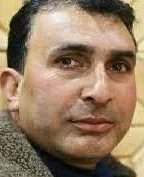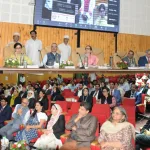A wise saying goes, “He who wears the crown must bear its weight.” The very conduct of training programs for teachers over the course of an academic year or beyond it, suggests that all is not well on the ground; the School Education Department, Jammu and Kashmir (SED, JK) dutifully and devotionally is alive to the challenging situation. To tide over the challenge, the SED has time and again come up with certain big reforms, including the most recent one termed as “TaRL” at the elementary level. For the remarkable move, the SED deserves appreciation.
What is loveliest to an impartial eye is that “Teaching at the Right Level” (TaRL) is apt and remedial. A training program for elementary teachers, TaRL bears a promise of infusing a new lease of life into the academic climate at the elementary level, done faithfully. The TaRL discovers the right level of students before making them learn in a stress-free and congenial atmosphere. This learning lasts longer and puts learners at ease.
Allowing the “PRATHAM” to lead the variety of activities in the training halls should be seen as a laudable job by the SED JK. The workforce of the PRATHAM displayed great dedication and commitment and execution when conducting such activities, under TaRL, for teachers to learn well before using them at the school level. Notably, the week-long program — which found all the elementary teachers of a district in attendance — was overseen by the district education officers on daily basis under the sublime and sincere supervision of district commissioners, most of whom would personally monitor the training in action. The case in point are worthy Deputy Commissioner Kulgam Athar Khan (who termed TaRL classes as Joy classes) and Chief Education Officer Kulgam Mohd Shabir .
Admittedly, the TaRL activities ensure learning by doing, a mode of teaching which captures the attention of pupils; learning gains a firmer ground. Individual performances take root. It is common knowledge that the education system in force largely promotes rote-learning while passing an exam remains the primary goal. As a result, memorizing facts and figures takes priority whereas learning, playing, comprehension and debates take a back seat. Critical and creative thinking lose significance. Also relevance.
To learn the best at school, there is only one requirement on behalf of students: attention. Unless students pay attention in or outside school, their education remains incomplete or unattained. No amount of money, infrastructure and reading material can suffice then. True, good teachers are a primary requirement for good learning of students. This author said in the previous column in this paper that unless a teacher improves, schools could not improve.
A teacher should be a teacher who religiously focuses on the learning of pupils; no place for personal likes and dislikes; no place for politics and groupism at schools. With the academic activities marred by controversies and confrontations, students’ learning gets a beating.
The RTE (Right to Education) act 2010 considers education a “fundamental right’ of every child and aims at providing free and compulsory education to all children aged between 6 and 14. That noble target is yet to be achieved. The act also focuses on no-exam format, infrastructure, teacher qualifications, standard text books, etc. Schools, facilities, acts etc. — all are meant to improve learning. But if that does not happen, then clearly we are not diagnosing and solving the real problems.
The much needed pre-primary education at our schools can play a pivotal part in laying a strong foundation of a child’s intellectual, emotional, physical and social development. It also enables a child to learn basics such as alphabet, numbers. That facilitates the child’s smooth and quick learning in primary education. And the learning of reading, writing, speaking and listening skills later on lead to an easy success for the child in higher classes. Up goes the students’ motivation level and achievement level.
To address the problems facing the elementary school academics, Pratham has a vision. It has a result –oriented mechanism which focuses on students’ learning. Pratham uses child attracting, innovative and all –inclusive Activity Based Learning (ABL). So interesting and fascinating are these activities that every child will love to participate in them. And so no more be a passive learner. The beauty of ABL is that children can learn basics of a subject while playing. Pratham believes that the first step towards universal primary education is to go for pre-primary education.
We are fortunate that the education department, SED JK, has reposed trust in Pratham, a non-governmental organization created to improve the quality of education in India. Backed faithfully, Pratham can up the teaching-learning standards and — learning outcomes. I happened to be one of the trainees. What I observed is that teachers loved all the activities and pointed out that these activities can really transform the quality of education at schools. This good intent must manifest itself in actions and bring forth a good crop. TaRL, it is hoped, will remain the key in the days to come.
Above all, a robust support mechanism, both at the administrative and non-administrative front, is essential for the new program’s forward journey on the ground level. Follow-up actions in tandem with a rational availability of staff shall be a blessing. Anything less is unlikely to keep the TaRL alive.
(Author is RK Columnist and teacher by profession. Feedback: [email protected])






